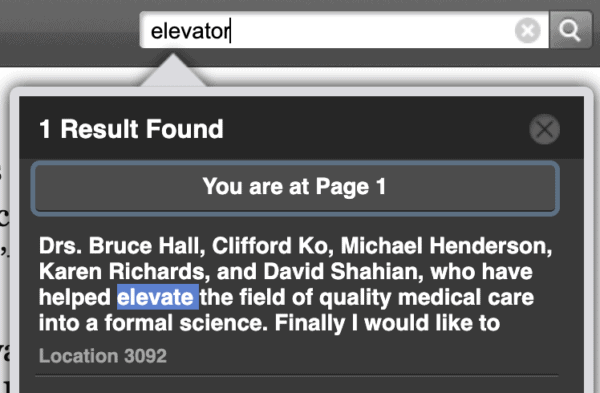I've been a fan of Dr. Marty Makary and his work for a while now. He has written about the systemic problems in healthcare that lead to so much harm and death as a result of preventable medical errors, including his book Unaccountable: What Hospitals Won't Tell You and How Transparency Can Revolutionize Health Care. I haven't read his latest book The Price We Pay: What Broke American Health Care–and How to Fix It.
He's a surgeon at Johns Hopkins and his writing almost puts him in a category that some would call “whistle blower.” I'm sure he's not popular in some healthcare circles.
More recently, he was one of the people featured in this episode of the Freakonomics podcast:
Dr. Makary tells a story in the episode that's absolutely mind boggling…
“When the surgeon Marty Makary was starting out, he was a trainee at D.C. General Hospital.
MAKARY: This was at the government-run city hospital in Washington, D.C.“
As for the timing of this story, he graduated medical school in 1998 and was doing his residency through 2003. So, let's say this story was 20 years ago.
“One elevator at D.C. General was particularly busy.
MAKARY: And at one point, the elevator was broken, and the doors were stuck in the open position. Well, some employee walked in there, fell, and died and I don't mean to make light of it, but for weeks afterwards, no one had put a sign or a note or a cone or you know, tape, “do not cross,” or anything.
And it's as if we were not learning from our mistakes. And weeks later somebody else fell in and didn't die, but hurt themselves and I thought, “Gosh, who's in charge of this entire ship? Who's thinking about every aspect of safety and reliability at the hospital? Are we so fragmented that everyone's just doing their job, collecting their paycheck, and not thinking about the entire ship?”
It's bad enough that an elevator with a stuck-open door wasn't blocked off with tape, cones, plywood, or something. That would have been a clear opportunity to be proactive in preventing this death.
But AFTER the incident, nobody reacted??
That's really hard to believe. Yet, I believe it. I'm not sure why Dr. Makary would make up a story on a really popular podcast. That would be really reckless of him.
I can believe that a hospital wasn't being proactive. We need more focus on proactive preventive measures, especially when it comes to causes of medical harm that are far less obvious than an open elevator shaft.
Again, from the podcast:
“The elevator incident stuck with Makary as a metaphor for the entire U.S. healthcare system:
MAKARY: I think we have a lot of good people working in a bad system. And if you look at the individuals, they'll often want to do what's right but they're a part of a small fragment of healthcare with its own business interests. And our system is so fragmented that the incentives are not often aligned.”
I agree with him that there are a lot of good people working in bad systems.
He talks about silos, which is a very true and common dynamic in healthcare. But, you'd think there would be CLEAR responsibility for an open elevator shaft, namely the facilities department. Ultimately, the CEO of the hospital and the CEO of the health system are responsible for the ship.
I did a Google search for “D.C. general hospital elevator death” and the closest hit is a 1980 Washington Post story (so the wrong decade) about a boy falling down an elevator shaft (wrong location).
I don't mean to be so skeptical about his story, but you'd think that story would be newsworthy and, since it happened in the internet era, would be better documented online. I did an electronic search of his book Unaccountable (via the Kindle app where I own the book) and the elevator story doesn't seem to be in there.

The TV drama “The Resident” (on Fox) was based on his book. I watched the first season and I don't remember them building an episode around that elevator incident (you'd think that would be fodder for the show, unless it's too unbelievable).
What's your experience with hospitals and patient safety? Beyond being non-proactive, are they too often not reacting in constructive ways to errors and harm? Who's in charge of the ship?
What do you think? Please scroll down (or click) to post a comment. Or please share the post with your thoughts on LinkedIn – and follow me or connect with me there.
Did you like this post? Make sure you don't miss a post or podcast — Subscribe to get notified about posts via email daily or weekly.
Check out my latest book, The Mistakes That Make Us: Cultivating a Culture of Learning and Innovation:









Hi Mark:
As a supply chain major who is interested in working in the healthcare industry, I found this article very informative – it confirmed many of the tidbits of information I’ve heard from people experienced in the field. I especially liked how you both bring up the silos that are so prevalent in the industry – and agree with the dangers we face having “good people working in bad systems.”